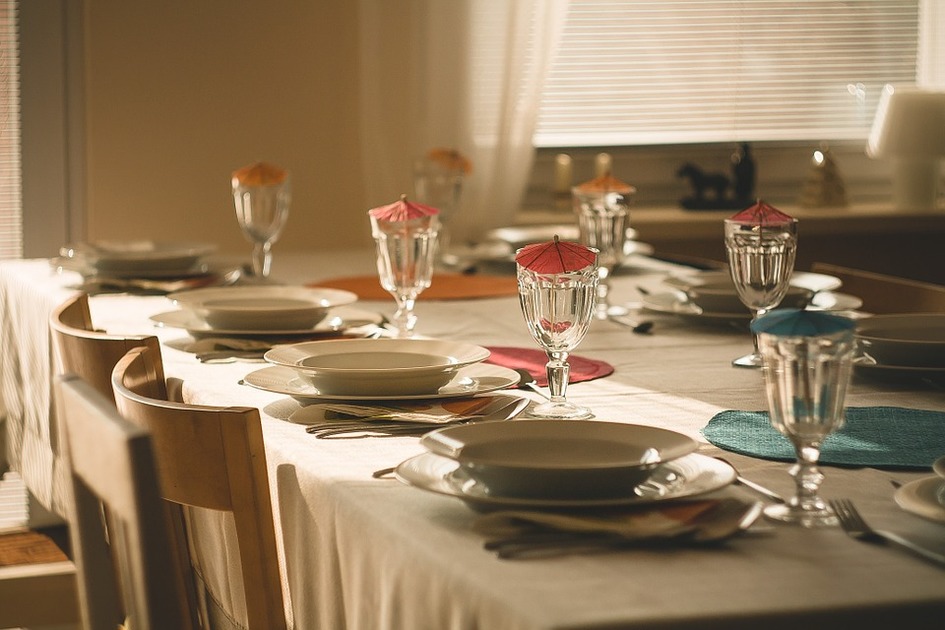
Dear Dr T.,
Since I was a little girl I dreamed about my Shabbos table- how we would all – my children and I- sit around and listen to my husband’s divrei torah and sing zemiros together. I was an only child of much older parents and our Shabbos table looked nothing like the Art Scroll coloring book.
But, guess what? Now that I have that family I so longed for, my shabbos table is a far cry from what I imagined.
It’s a complicated picture. We have both infants and teens – with different wants and needs. It’s really quite a challenge to keep everyone interested and engaged. In addition, my husband and I don’t see eye to eye here. While I have a relaxed parenting style, he is a bit stiff and rigid – probably because he is European. He wants all the children to sit and participate for the whole meal. He feels that it is not unreasonable to expect children to keep it together for just two meals a week. I, on the other hand, would be ok with children, especially the younger ones, leaving the table.
Last Shabbos was a disaster. When my husband started Kiddush, my son – age 14- looked at his younger sister and they both start laughing. My husband stopped and gave them a look, but that only made it worse. By the time Kiddush was done, another child had joined the giggle-fest and my husband was clearly annoyed.
Actually, this kind of laughing-for-no-reason happens at other times – always at the worst times- like havdala or mezumin. As chilled as I am, even I find the laughing offensive.
What is the right balance here?
Dr. T.,
Your question is one that many people ask. Shabbos is our center, and the desire to do it ‘right’ is foremost in many a parent’s mind. There is also an honest desire to have that uplifting Shabbos experience so often described in books- coloring or otherwise- pictures, or the frequent tales of people who become frum just from sitting at an inspiring shabbos table.
But, the truth is that the shabbos table is made up of people – often very imperfect ones at that. It is comprised of many different ages and stages, wants and needs. It is subject to the vagaries of mood and season –and, sometimes it is great and sometimes it falls short.
Yet, most of us do have that idealized picture in our mind, and feel guilty when we fail. We also conveniently forget our past and romanticize our childhood experience.
I say all this not to disparage the idea of a beautiful shabbos seuda, but simply to inject some reality into the picture. A beautiful shabbos is a basic goal to strive for, but not a given. Our children won’t necessarily ‘come to the table’: if we want it to happen, we, the parents, have to do what we can –to the best of our ability- to make sure that it does.
The shabbos table and the kedusha it entails, is a product of our parenting work. As in most enterprises, we generally get what we pay for. That means that if the shabbos table is important to you, you need to take responsibility for its success, not expect your children to simply fulfill your dreams.
How to create a positive atmosphere and develop our children’s love of torah and mitzvos is the subject of hundreds of wonderful English language seforim, speeches, and articles- all easily available to the public. I cannot urge my readers enough to look for an author or book that speaks to them. There are many different approaches and today, BH, the information is readily available to us.
However, there is one parenting principle that I would like to highlight here - developing realistic expectations. To accomplish our goal, we want to tailor it to the age, personality, and reality of our situation. For example, for pre-schoolers, Kiddush-challah-dzert is about all they can bear. And while your bais medrash boy may enjoy one kind of talk, his ninth grade sister may not. Some children do better with guests, while others resent the diverted attention. There is no ‘right’ way to do this, but by evaluating your situation honestly, you have the best odds of making the experience a meaningful one for each child.
At this point, I would like to comment on your children’s nervous laughter. While it troubles you, it actually is quite a useful tip. Nervous laughter is an expression of discomfort at times of high emotional stress. Though it is a sub-conscious way to reduce stress and calm down, as any of us who have experienced this embarrassing symptom knows, it also heightens the awkwardness. So, you want to think about and even discuss with your children their laughter and what they think is the cause. Once you have it all figured out and have dealt with its source, the atmosphere will be more pleasant for you all.
Too often in life we assume – and our assumptions do us in. We project that the summer will be amazing, starting cheder a joy, and a family trip- sheer bliss. We see ourselves walking down the street with our perfectly well-behaved children- the envy of all. We conveniently forget that the results we so desire don’t just happen. They take work, really hard work. And, nowhere is this truer than in parenting – where our proactive planning is so essential for the hatzlocha of our children.
So, dream on. But, make sure that you do the work to make that dream a reality.
Reprinted from Binah Magazine
 Previous
Previous

